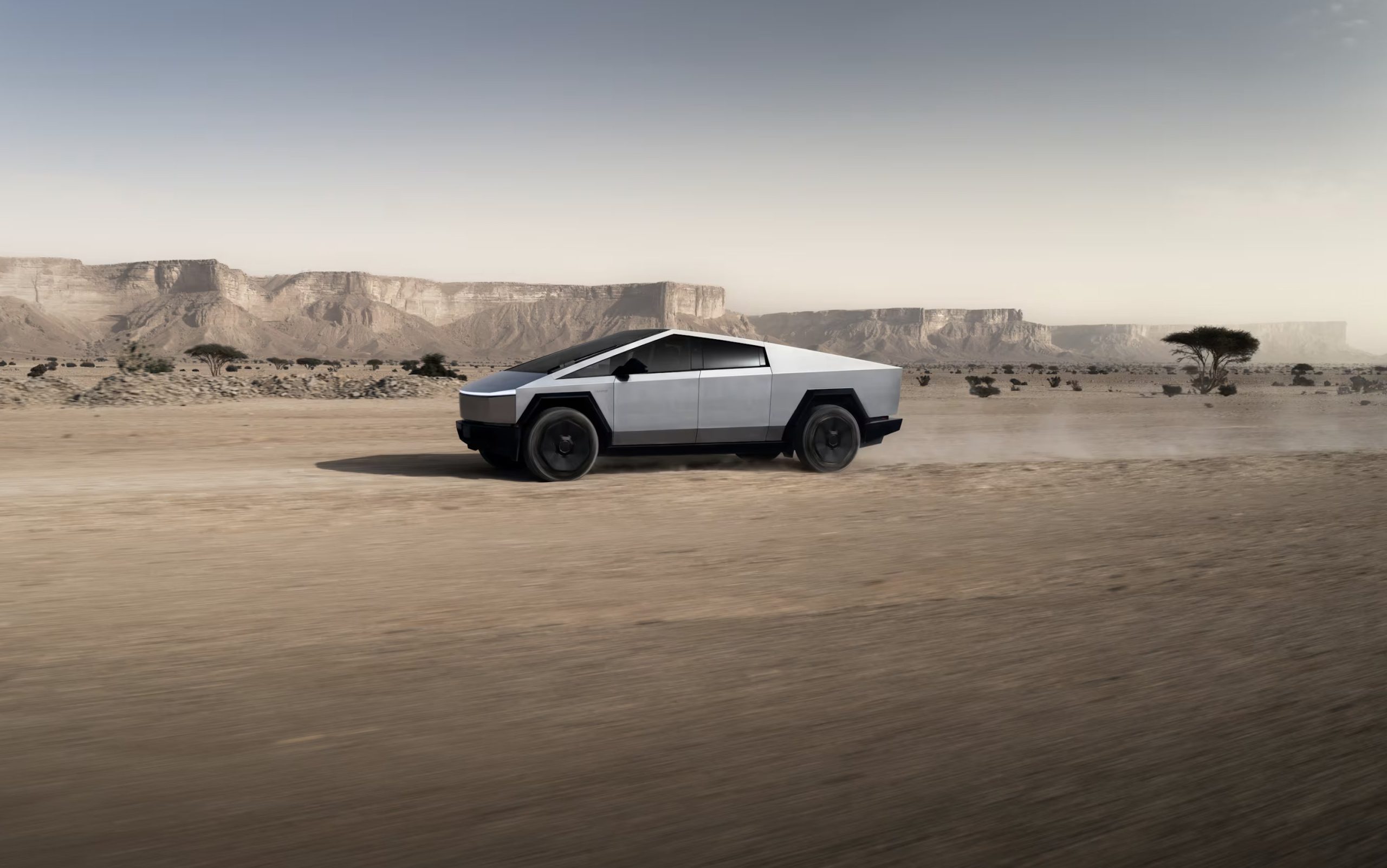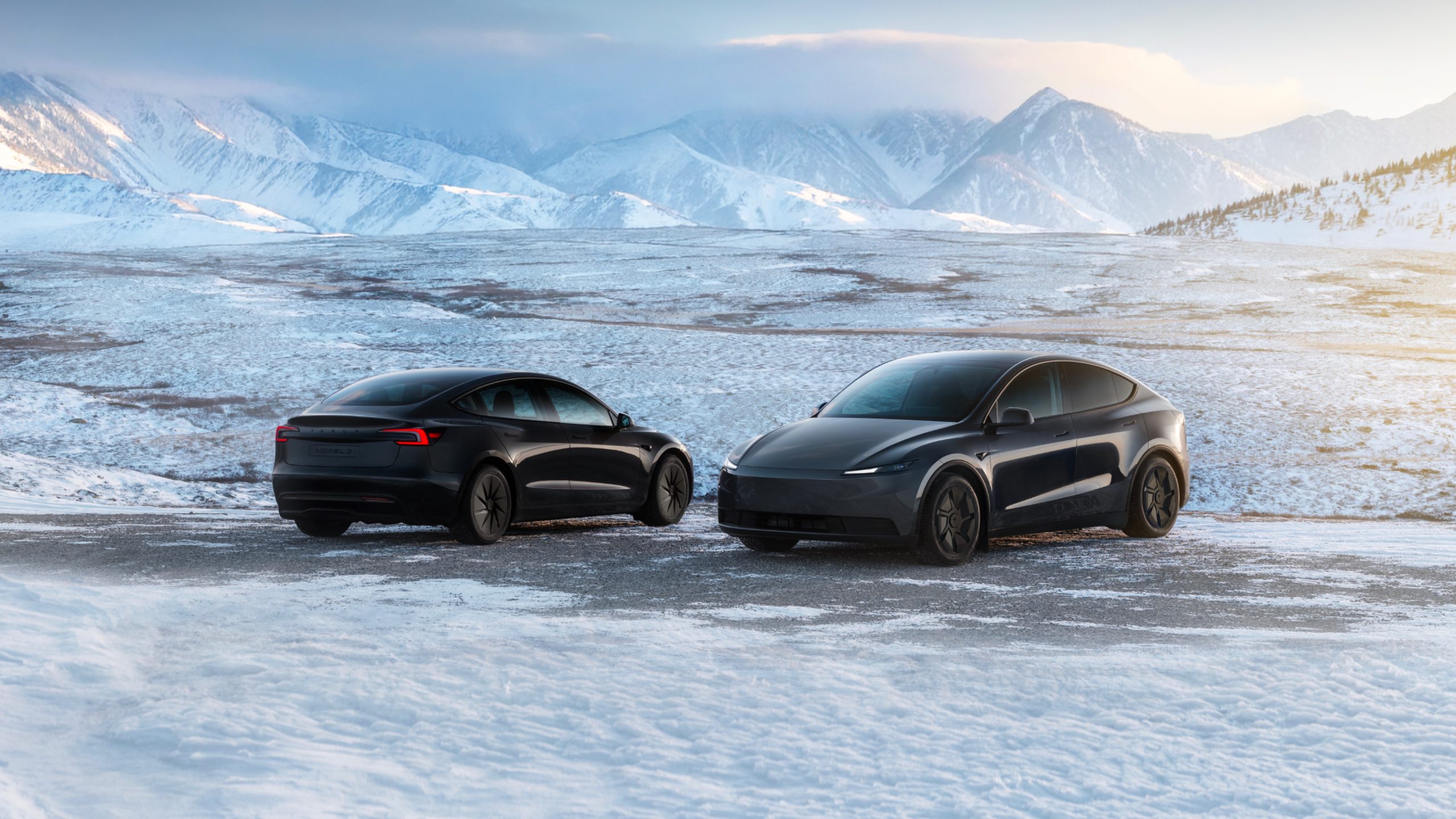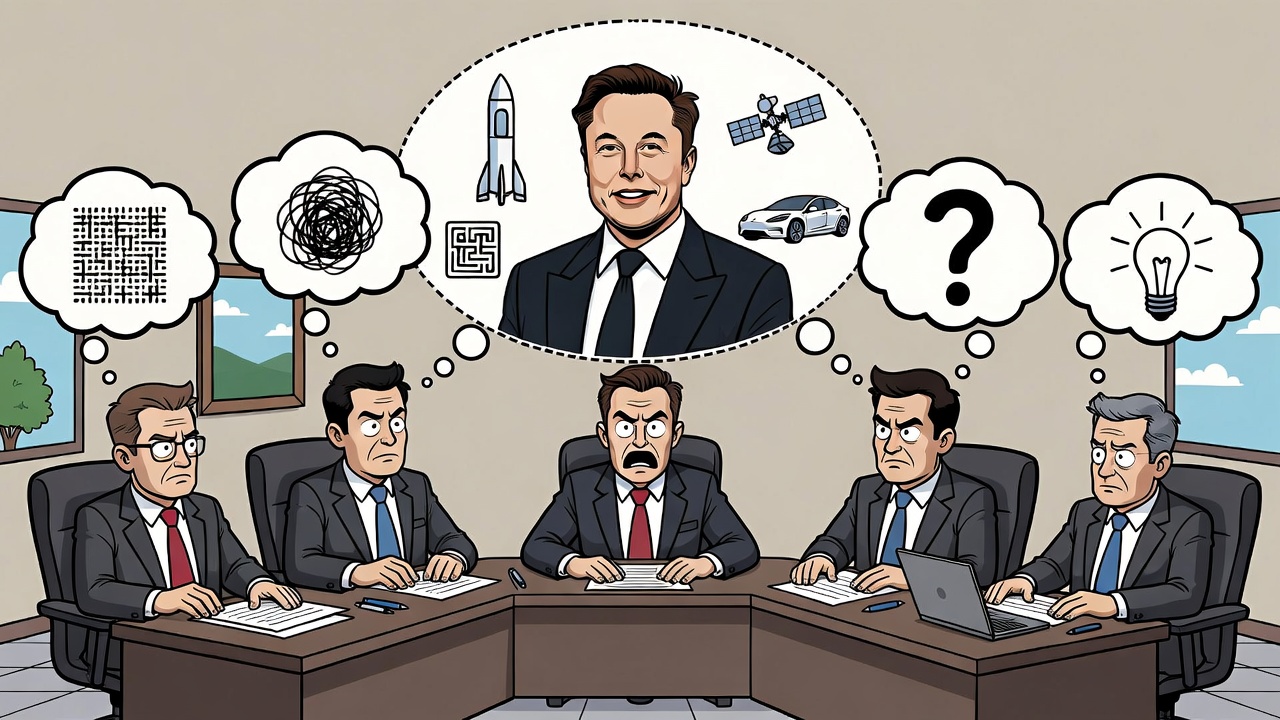News
These Tesla, X, and xAI engineers were just poached by OpenAI
The news is the latest in an ongoing feud between Elon Musk and the Sam Altman-run firm OpenAI.

OpenAI, the xAI competitor for which Elon Musk previously served as a boardmember and helped to co-found, has reportedly poached high-level engineers from Tesla, along with others from xAI, X, and still others.
On Tuesday, Wired reported that OpenAI hired four high-level engineers from Tesla, xAI, and X, as seen in an internal Slack message sent by co-founder Greg Brockman. The engineers include Tesla Vice President of Software Engineering David Lau, X and xAI’s head of infrastructure engineering Uday Ruddarraju, and fellow xAI infrastructure engineer Mike Dalton. The hiring spree also included Angela Fan, an AI researcher from Meta.
“We’re excited to welcome these new members to our scaling team,” said Hannah Wong, an OpenAI spokesperson. “Our approach is to continue building and bringing together world-class infrastructure, research, and product teams to accelerate our mission and deliver the benefits of AI to hundreds of millions of people.”
Lau has been in his position as Tesla’s VP of Software Engineering since 2017, after previously working for the company’s firmware, platforms, and system integration divisions.
“It has become incredibly clear to me that accelerating progress towards safe, well-aligned artificial general intelligence is the most rewarding mission I could imagine for the next chapter of my career,” Lau said in a statement to Wired.
🚨Optimistic projections point to xAI possibly attaining profitability by 2027, according to Bloomberg's sources.
If accurate, this would be quite a feat for xAI. OpenAI, its biggest rival, is still looking at 2029 as the year it could become cash flow positive.💰 https://t.co/pE5Z9daez8
— TESLARATI (@Teslarati) June 18, 2025
READ MORE ON OPENAI: Elon Musk’s OpenAI lawsuit clears hurdle as trial looms
At xAI, Ruddarraju and Dalton both played a large role in developing the Colossus supercomputer, which is comprised of over 200,000 GPUs. One of the major ongoing projects at OpenAI is the company’s Stargate program,
“Infrastructure is where research meets reality, and OpenAI has already demonstrated this successfully,” Ruddarraju told Wired in another statement. “Stargate, in particular, is an infrastructure moonshot that perfectly matches the ambitious, systems-level challenges I love taking on.”
Elon Musk is currently in the process of suing OpenAI for shifting toward a for-profit model, as well as for accepting an investment of billions of dollars from Microsoft. OpenAI retaliated with a counterlawsuit, in which it alleges that Musk is interfering with the company’s business and engaging in unfair competition practices.
Elon Musk confirms Grok 4 launch on July 9 with livestream event

Cybertruck
Tesla launches new Cybertruck trim with more features than ever for a low price
This is a considerable upgrade to the Cybertruck Rear-Wheel-Drive that Tesla offered last year. It was discontinued after just a few months, but we still have yet to see anyone share pictures of it online.

Tesla has officially launched a new trim of its all-electric Cybertruck, which has more features than previous offerings at this price point, which is an incredibly good value.
Tesla is now offering the Cybertruck All-Wheel-Drive, and starting at $59,990, it appears to be a lot of truck for the money.
Along with the sub-$60,000 starting price, Tesla gives the Cybertruck AWD a 325-mile range rating, a powered tonneau cover that houses three bed outlets. It also has Powershare capability, coil springs with adaptive damping for a refined suspension feel, Steer-by-wire and four-wheel-steering, a 6′ x 4′ composite bed, a towing capacity of 7,500 pounds, and a powered frunk.
This is a considerable upgrade to the Cybertruck Rear-Wheel-Drive that Tesla offered last year. It was discontinued after just a few months, but we still have yet to see anyone share pictures of it online.
Tesla has launched a new Cybertruck trim: the Cybertruck AWD
– Starts at $59,990
– Dual Motor AWD w/ est. 325 mi of range
– Powered tonneau cover
– Bed outlets (2x 120V + 1x 240V) & Powershare capability
– Coil springs w/ adaptive damping
– Heated first-row seats w/ textile… pic.twitter.com/erZBtlq3Bs— TESLARATI (@Teslarati) February 20, 2026
That truck did not have a power tonneau, did not have adaptive suspension, leather seats, or nearly any of the premium features in the upper-level trims. It was not a great deal, either. It was only a $10,000 discount from the next Cybertruck trim, which meant losing a motor and a lot of premium features for not that much of a savings.
This is a much better offering from Tesla and could help the company see a bit of a resurgence from a sales perspective. Although the Cybertruck is a popular vehicle from a fan perspective, it is not a great seller, and Tesla knows it.
Tesla Cybertruck undergoes interior mod that many owners wanted
Despite it being a crowd favorite, it was simply priced out of people’s budgets, so this All-Wheel-Drive configuration should be easier to handle financially for many of those who wanted the Cybertruck but not the price tag that came with it.
It is not a far cry from what Tesla priced back in 2019, as it unveiled three trim levels back in November, nearly seven years ago: a Single Motor for $39,990, a Dual Motor for $49,990, and a Tri-Motor for $69,990.
This new AWD trim is just $10,000 off from that price tag, and accounting for inflation, Tesla is pretty close.
Deliveries are expected to begin in June 2026.
News
Tesla dominates JD Power EV Satisfaction ranking, grabbing top two spots
The Model 3 was the highest ranking EV considered, with a score of 804, followed by the Model Y at 797, the BMW i4 at 795, and the BMW iX at 794.

Tesla dominated JD Power’s EV Owner Satisfaction ranking for 2026, grabbing the top two spots in the survey with the Model 3 and Model Y.
The two Tesla models grabbed the first and second spots, respectively, with scores of 804 and 797 out of 1,000 possible points.
Brent Gruber, Executive Director of JD Power’s EV practice, said:
“EV market share has declined sharply following the discontinuation of the federal tax credit program in September 2025, but that dip belies steadily growing customer satisfaction among owners of new EVs. Improvements in battery technology, charging infrastructure, and overall vehicle performance have driven customer satisfaction to its highest level ever. What’s more, the vast majority of current EV owners say they will consider purchasing another EV for their next vehicle, regardless of whether they benefited from the now-expired federal tax credit.”
JD Power’s study showed three key findings: Public charging satisfaction was higher than ever, premium BEVs saw more pronounced quality improvements, and BEVs held their satisfaction ratings compared to plug-in hybrid electric vehicles (PHEVs).
Tesla Grabs Top 2 Spots
Despite what some publications might try to make you believe, Tesla is still the cream of the crop when it comes to EV ownership, and real-world owners surveyed by JD Power will prove that to you.
The Model 3 was the highest ranking EV considered, with a score of 804, followed by the Model Y at 797, the BMW i4 at 795, and the BMW iX at 794. The segment average for “Premium Battery Electric Vehicles” was 786. The Cadillac OPTIQ (762), Rivian R1S (758), Lucid Air (740), Rivian R1T (739), and Audi Q6 e-Tron (690) all finished below that threshold.
Meanwhile, a separate category for “Mass Market Battery Electric Vehicles” had the Ford Mustang Mach-E as the EV with the highest rating at 760. The segment average for this class was 727.
🚨 Tesla topped J.D. Power’s new EV Owner Satisfaction Study for 2026, with the Model 3 (804) and Model Y (797) being the top-rated vehicles, beating out the BMW i4 (795) and iX (794)
Additionally, Tesla Superchargers helped public charging satisfaction rise to new highs:
“The… pic.twitter.com/4WIxoDxHig
— TESLARATI (@Teslarati) February 19, 2026
Tesla Supercharging Improves Public Charging Satisfaction
JD Power said the availability of public charging is “by far the most improved index factor,” and that the consistent growth of publicly available charging has helped push many consumer sentiments in a positive direction.
Most of this is due to the Tesla Supercharger Network and its expansion. However, Tesla owners are also becoming more satisfied with the infrastructure after expanding access to other EV brands, the study said.
Elon Musk
Musk company boycott proposal at City Council meeting gets weird and ironic
The City of Davis in California held a weekly city council meeting on Tuesday, where it voted on a proposal to ban Musk-operated companies. It got weird and ironic.

A city council meeting in California that proposed banning the entry of new contracts with companies controlled by Elon Musk got weird and ironic on Tuesday night after councilmembers were forced to admit some of the entities would benefit the community.
The City of Davis in California held a weekly city council meeting on Tuesday, where it voted on a proposal called “Resolution Ending Engagement With Elon Musk-Controlled Companies and To Encourage CalPERS To Divest Stock In These Companies.”
The proposal claimed that Musk ” has used his influence and corporate platforms to promote political ideologies and activities that threaten democratic norms and institutions, including campaign finance activities that raise ethical and legal concerns.”
We reported on it on Tuesday before the meeting:
California city weighs banning Elon Musk companies like Tesla and SpaceX
However, the meeting is now published online, and it truly got strange.
While it was supported by various members of the community, you could truly tell who was completely misinformed about the influence of Musk’s companies, their current status from an economic and competitive standpoint, and how much some of Musk’s companies’ projects benefit the community.
City Council Member Admits Starlink is Helpful
One City Council member was forced to admit that Starlink, the satellite internet project established by Musk’s SpaceX, was beneficial to the community because the emergency response system utilized it for EMS, Fire, and Police communications in the event of a power outage.
After public comments were heard, councilmembers amended some of the language in the proposal to not include Starlink because of its benefits to public safety.
One community member even said, “There should be exceptions to the rule.”
🚨 After the City of Davis, California, held its City Council meeting on Tuesday and voted on a resolution called “Resolution Ending Engagement With Elon Musk-Controlled Companies and To Encourage CalPERS To Divest Stock In These Companies,” it was forced to admit that it needs… pic.twitter.com/hQiCIX3yll
— TESLARATI (@Teslarati) February 19, 2026
Community Members Report Out of Touch Mainstream Media Narratives
Many community members very obviously read big bold headlines about how horribly Tesla is performing in terms of electric vehicles. Many pointed to “labor intimidation” tactics being used at the company’s Fremont Factory, racial discrimination lawsuits, and Musk’s political involvement as clear-cut reasons why Davis should not consider his companies for future contracts.
However, it was interesting to hear some of them speak, very obviously out of touch with reality.
Musk has encouraged unions to propose organizing at the Fremont Factory, stating that many employees would not be on board because they are already treated very well. In 2022, he invited Union leaders to come to Fremont “at their convenience.”
The UAW never took the opportunity.
Some have argued that Tesla prevented pro-union clothing at Fremont, which it did for safety reasons. An appeals court sided with Tesla, stating that the company had a right to enforce work uniforms to ensure employee safety.
Another community member said that Tesla was losing market share in the U.S. due to growing competition from legacy automakers.
“Plus, these existing auto companies have learned a lot from what Tesla has done,” she said. Interestingly, Ford, General Motors, and Stellantis have all pulled back from their EV ambitions significantly. All three took billions in financial hits.
One Resident Crosses a Line
One resident’s time at the podium included this:
Another member of the community did this…a member of the City Council admonished him and it came to a verbal spat https://t.co/zWvKCiCkie pic.twitter.com/1L334qq9av
— TESLARATI (@Teslarati) February 19, 2026
He was admonished by City Council member Bapu Vaitla, who said his actions were offensive. The two sparred verbally for a few seconds before their argument ended.
City Council Vote Result
Ultimately, the City of Davis chose to pass the motion, but they also amended it to exclude Starlink because of its emergency system benefits.








